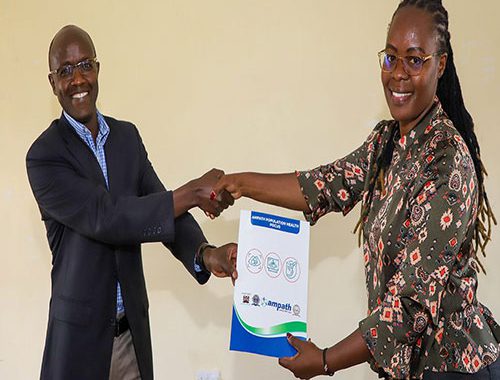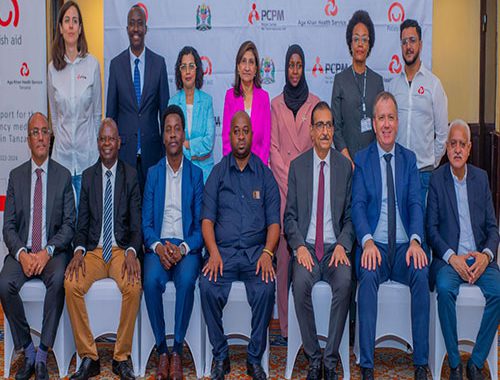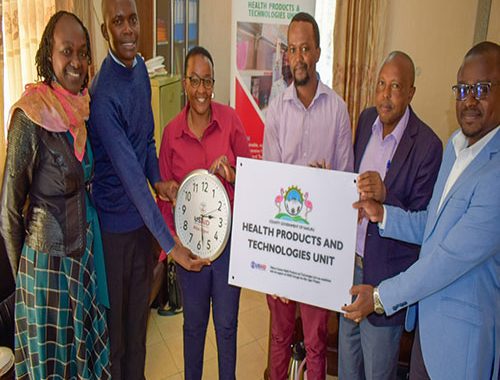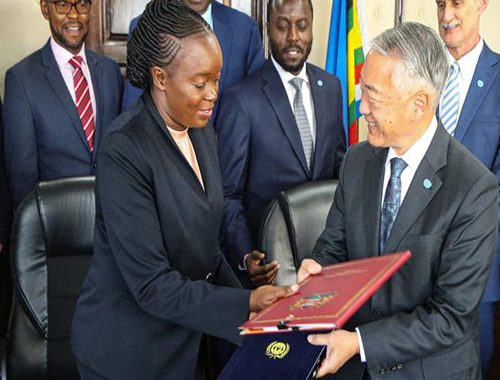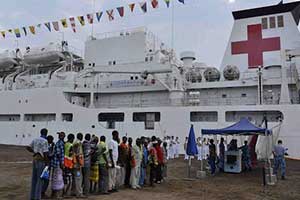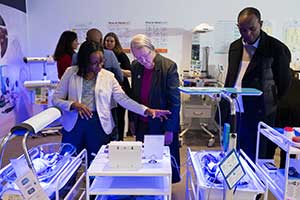In order to improve AMPATH’s patient-centered primary care, Moi University and AMPATH Kenya have secured a new 4-year funding that will teach local leadership in six counties in western Kenya in the use of portable point-of-care ultrasounds (POCUS). Panorama Global is providing support for the initiative, which is funded by Novartis, Eli Lilly and Company and MSD through its MSD for Mothers program.
POCUS is a tool used by clinicians and healthcare professionals to capture rapid, in-the-moment images within the body, frequently at the patient’s bedside. It assists the medical professional in responding to particular queries, such whether the heart is beating appropriately or whether the baby is positioned correctly in the womb. In addition to the physical examination, this technology provides medical professionals with more instant information to help them make treatment decisions.
24 healthcare professionals were trained at Webuye County Hospital in Bungoma County, the first of six POCUS Innovation Centres, as part of the project’s January 13, 2025 launch. Ten sub-county trainings for 670 healthcare workers in Bungoma County will follow this one. A total of 190 probes will be dispersed among nearby rural medical clinics.
One of the principal investigators (PIs) for the $6.5 million USD grant, Dr. Hussein Elias, a lecturer in the Moi University Department of Family Medicine, Medical Education and Community Health, stated that POCUS empowers medical professionals to see and identify conditions like heart failure, breast cancer and certain obstetrical complications earlier and increases the likelihood of better treatment and survival.
In low and middle-income nations like Kenya, diagnostic imaging is not easily accessible in settings with limited resources, especially in rural areas like western Kenya. To make diagnoses, medical professionals must instead rely on their knowledge of physical examination techniques and the patient’s medical history. In cases where early discovery might significantly improve outcomes, such as breast cancer, heart failure and more complex problems during pregnancy, this is not always enough. With a portable, handheld device, POCUS enables healthcare professionals to rapidly assess conditions in places with limited access to cutting-edge medical facilities. This can result in quicker treatment, less travel time for patients to hospitals, and even save lives by identifying serious problems early.
“These healthcare professionals can detect life-threatening conditions earlier, increasing the chances for earlier treatment and survival, by using POCUS to assess cardiac function, identify specific pregnancy complications, or a suspicious mass in the breast,” added Daria Szkwarko, DO, MPH, Co-PI on the grant and associate professor in Family Medicine at the Warren Alpert Medical School of Brown University.
Building on the Kenyan Ministry of Health’s primary care network model, the project will establish ‘POCUS innovation centres’ at primary care network hubs to train and mentor 4000 healthcare workers in the use of POCUS in collaboration with the Global Ultrasound Institute (GUSI), a global leader in POCUS education.
This project, which will be implemented quickly in the first year in Bungoma County, will focus on obstetrical complications in pregnant women as well as identifying heart failure in patients with diabetes and/or hypertension who are symptomatic and identifying potentially malignant breast masses in patients who present with breast lumps.
“We expect that over half a million patients will have point-of-care ultrasounds in facilities with limited on-site access to diagnostic imaging over the course of four years,” Dr. Elias continued.
In Kenya and other resource-constrained environments in low- and middle-income nations across the world, the outcomes of the grant activities will guide the national POCUS rollout. According to Dr. Szkwarko, “the project includes a research component to evaluate the integrated hub approach for POCUS implementation by assessing its impact on the training and supervision of healthcare workers, delivery of patient care, and health outcomes, in addition to improving patient care and treatment plans.”

